- New In
-
Dining
-
Dining Table Sets
 Dining Set Builder
Dining Set Builder
 Dining Table and Chairs
Dining Table and Chairs
 Dining Table and 4 Chairs
Dining Table and 4 Chairs
 Dining Table and 6 Chairs
Dining Table and 6 Chairs
 Dining Table and 8 Chairs
Dining Table and 8 Chairs
 Dining Table and 10 Chairs
Dining Table and 10 Chairs
 Dining Table with Benches
Dining Table with Benches
 Painted Dining Table and Chairs
Painted Dining Table and Chairs
 Ceramic Dining Table and Chairs
Ceramic Dining Table and Chairs
 Round Dining Table and Chairs
View All
Dining Tables
Round Dining Table and Chairs
View All
Dining Tables 4 Seater Dining Tables
4 Seater Dining Tables
 6 Seater Dining Tables
6 Seater Dining Tables
 8 Seater Dining Tables
8 Seater Dining Tables
 10 Seater Dining Tables
10 Seater Dining Tables
 Extendable Dining Tables
Extendable Dining Tables
 Round Dining Tables
View All
Dining Room Furniture
Round Dining Tables
View All
Dining Room Furniture Sideboards
Sideboards
 Dressers
Dressers
 Larders
Larders
 Display Cabinets
Display Cabinets
 Painted Dining Room Furniture
Painted Dining Room Furniture
 Console Tables
Console Tables
 Side Tables
Side Tables
 Home Accessories
Home Accessories
 Furniture Wax and Care Kits
View All
Furniture Wax and Care Kits
View All
-
- Living
- Sofas
-
Bedroom
-
Bedroom Furniture
 Bedside Tables
Bedside Tables
 Blanket Boxes
Blanket Boxes
 Chest of Drawers
Chest of Drawers
 Desks
Desks
 Dressing Tables
Dressing Tables
 Tallboys
Tallboys
 Wardrobes
View All
Mattresses
Wardrobes
View All
Mattresses All Mattresses
All Mattresses
 Single Mattresses
Single Mattresses
 Double Mattresses
Double Mattresses
 King-Size Mattresses
King-Size Mattresses
 Super King-Size Mattresses
Super King-Size Mattresses
 Pillows
Pillows
 Harrison Spinks Mattresses
Harrison Spinks Mattresses
 OFL Mattresses
OFL Mattresses
 Relyon Mattresses
Relyon Mattresses
 Sealy Mattresses
View All
Sealy Mattresses
View All
-
-
Ranges
-
Accessories
-
Offers
- Clearance
Inspiration Station - Living Room
10 Tips to make a small living room seem larger

Does your living room feel cramped? If you’re finding it a little on the small side, there are some tried and tested style tips that can help. Read on for ideas to make the most of the space in your living room.
Make walls pale and interesting

Starting with the walls, the first thing to do is to use pale colours. Lighter shades will instantly make your room seem bigger, and give an open atmosphere. Light coloured walls reflect any available light, where dark colours do the opposite. They absorb the light, and will give a stuffy feel to a small room.
Pale colours don’t have to be boring. Lighter greys and oatmeal shades can be a neutral starting point, but pale pastel yellows, pinks or blues could be used to add colour. All-white is another option. By painting both the walls and ceiling white, light is given full rein, and any boxy feel substantially reduced.
Keep floor covering simple
To help create the illusion of space, keep the floor covering simple. One uniform colour or texture leads the eye smoothly across the floor. Also, keep things off the floor. If furniture has some space between the base and floor, lifted by small feet, that’s another way to keep the floor looking open.
Mirrors bring in light

Mirrors multiply the effect of any light coming into a smaller space. Position one to catch daylight by a window so it can send brightness around the room. Keeping your room clear of clutter will help the reflection, too. If your room has low ceilings, a taller mirror will accentuate height. With narrow rooms, a sofa along the length of a sofa or above a sideboard will give a sense of depth.
Keep curtains light
Continuing the uncluttered, smoothing idea, keep your windows as clear as possible. Have your curtains pale in colour – matching the wall colour is ideal. This stops an interior style looking disjointed, and keeps the smaller room looking harmonious. Hang your curtains as high as possible too, to accentuate height in the room. Pale coloured textiles will help reflect light in from the window, too. Translucency from sheer materials – if practical – will enhance light.
Make furniture work for its space
When furnishing your smaller room, keep to simple shapes, and slim lines. Use furniture that has two uses – a storage footstool can act as extra seating as well as being a handy place to put things. A nest of tables tucked by the sofa will provide extra surfaces just when they’re needed – and then they can be tidied away again. Loveseats are bigger than an armchair, but smaller than a two seater sofa. Could one fit an awkward small space to make the most of the seating space?
Try to keep as much floor space clear as possible – and that includes under the furniture, too. The more of the floor you can see clear, the more open a room will look. As obvious as it may seem, it's always good to consider smaller pieces too - for example, a small tv unit, a small bookcase or a small sideboard.

Plan your lamp light
For evening, plan the position of your lighting to give the illusion of space. Choose table lamps with light or translucent shades. Position these pools of light in a couple of different places – the spreading glow will keep the look open. Choose a floor lamp like our Tampere floor lamp with a slender and streamlined design. A tall, slim lamp won’t intrude in the daytime, but will come into its own on dark winter evenings.
Open the door to more space
Doors take up room in a small room. If practical, you could consider removing them completely. To have the freedom of choosing between an open room or cosy snug, maybe folding doors would be the answer for your interior style. Doors with panes of glass let light shine through, while keeping the noise barrier intact between rooms.
Organising shelves

Shelving can be used imaginatively to make the most of a space. An awkward spot under stairs or above doors can hold a shelf, or maybe a statement wall filled with narrow shelving – floor to ceiling – would be the answer for your room. Don’t over fill shelves, but keep things spaced so they don’t look cramped. Shelves shouldn’t be a dumping ground, but a place to put things of interest, whether books or ornaments. Think about painting them the same colour as the walls, too, so the shelves visually recede and blend in.
Artwork for impact
With pale walls, sleek furnishings, and smooth flooring, the idea has been to make colours and textiles complement each other. When deciding what to put on the wall, a larger artwork to focus attention in the most open part of your smaller living room is best. Position it to balance the room, whether that’s for symmetry on a chimney breast, or where it can be seen comfortably from the sofa. Choose the shape for balance, too. A tall, portrait picture adds height, and a landscape shape will make a room seem wider.
Decluttering
So easy to advise, and sometimes hard to do. For a cleaner open space, clutter will have to go. Put a display area of photos or ornaments in one part of the room – and keep the rest clear. Be ruthless when clutter starts to build. Put remotes for the TV away, keep on top of magazines and books – make sure there’s a place for them to live. The storage footstool, perhaps? Maybe a coffee table with drawers will make all the difference for keeping your living room neat. Take stock, now you’ve gone to the trouble of really thinking about how to make the most of your smaller living room.
If you’re looking for more ideas on how to decorate your living room, explore our full ranges of living room furniture and painted living room furniture.
More Inspiration

Our TV Ads
Discover our latest TV ads, showcasing our extensive furniture collections, all made with longevity in mind.
Find out more »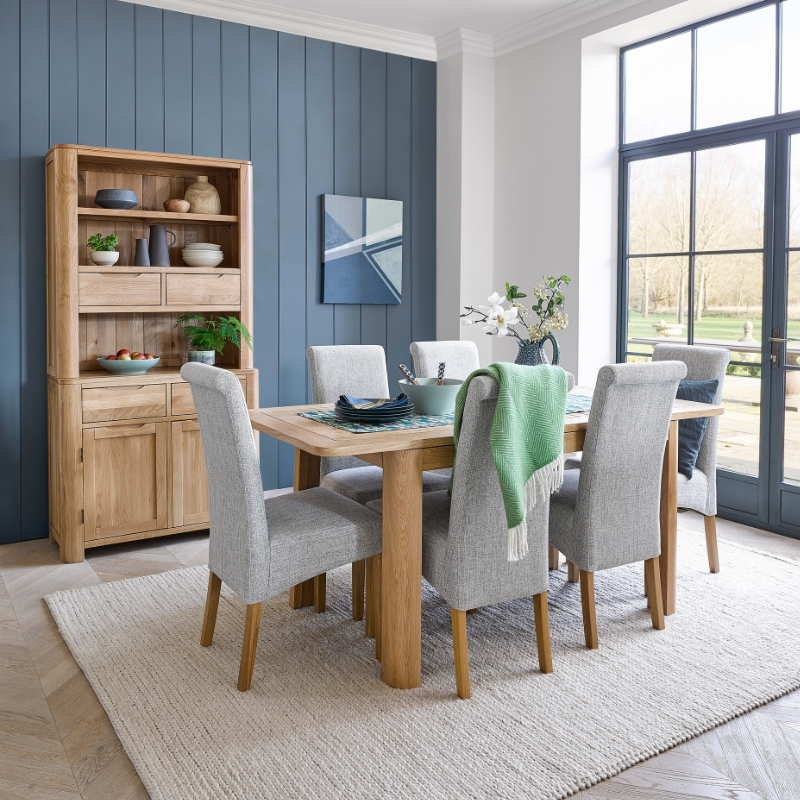
Quality you can trust
From hardwood cabinetry to durable upholstery, check out our stylish designs and discover the quality that sets our furniture apart.
Learn more »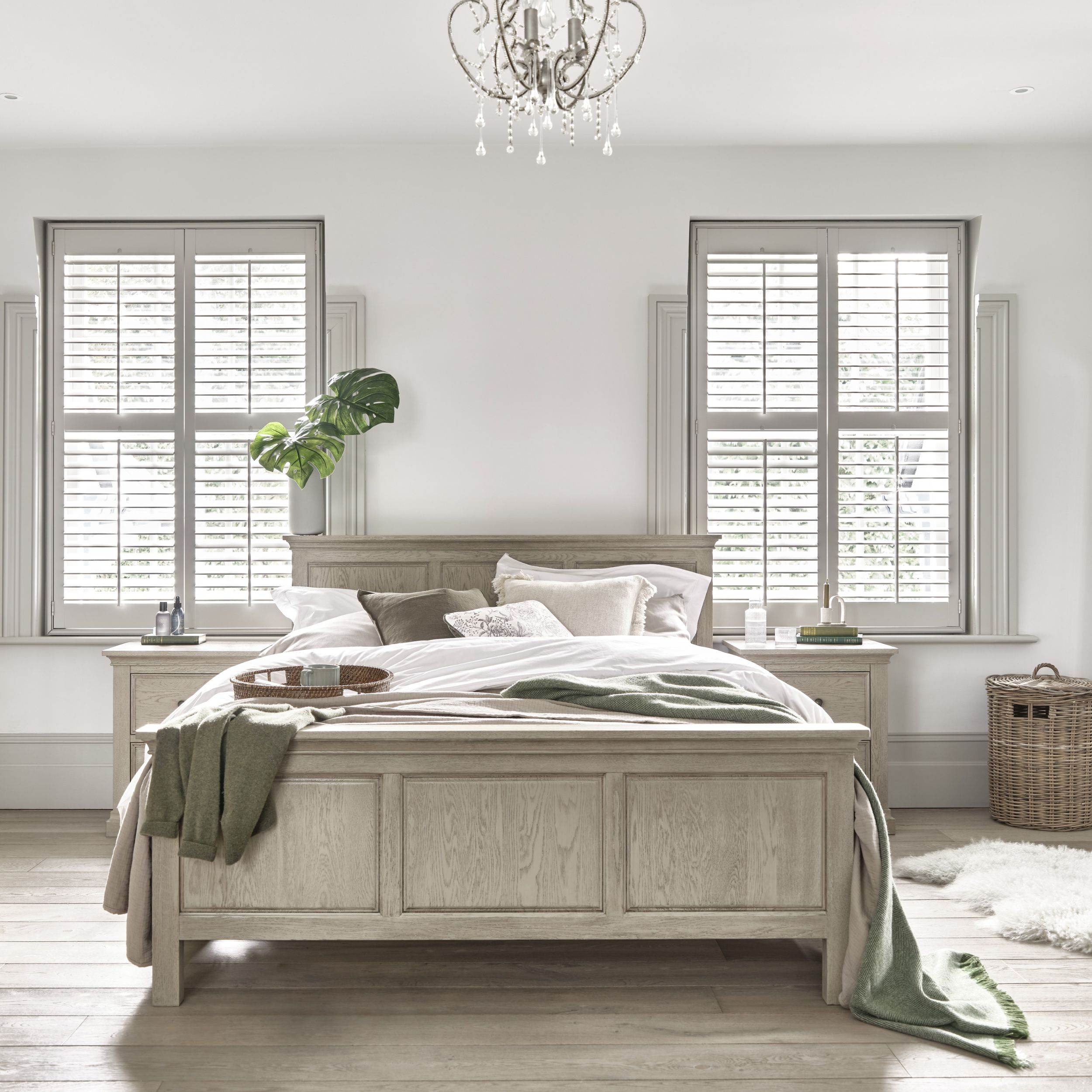
Furniture guides
Our helpful Furniture Guides provide you with extra in-depth knowledge on our products, services, and even key interior decorating tips!
Discover more »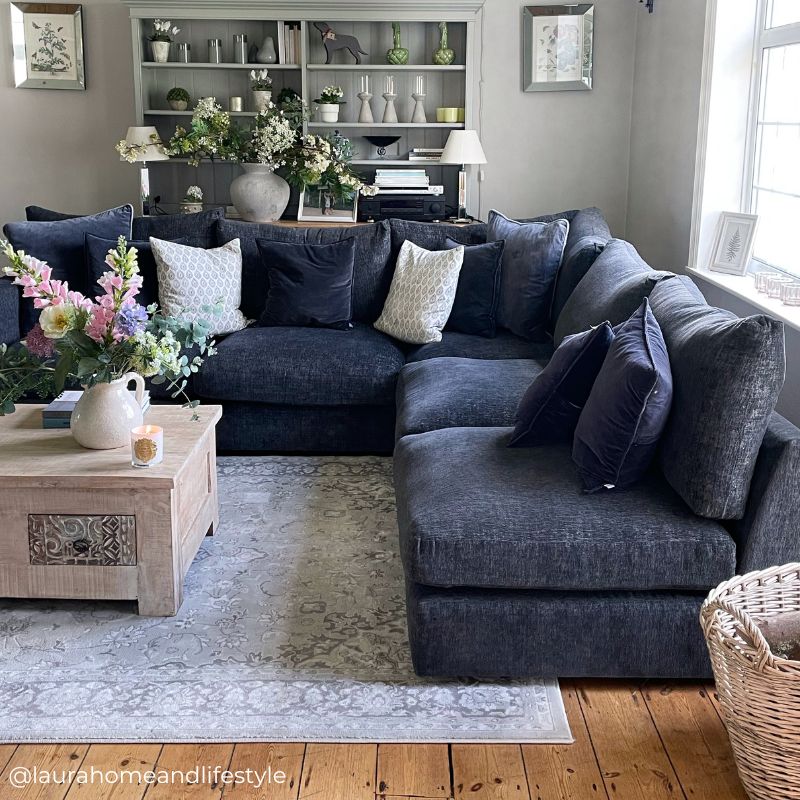
Our blog
From inspiring trend-led tips to Q&As with interiors experts, head to our blog to pick up handy style ideas for every room.
Read more »Your #OakFurnitureLand Style
X
Chat online with our team
You can request a callback from our team as an alternative
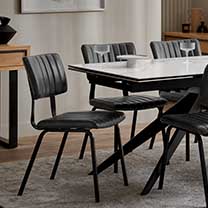
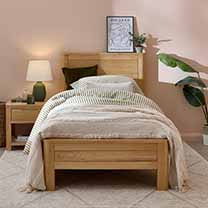
.jpg)
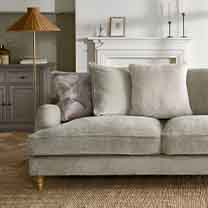
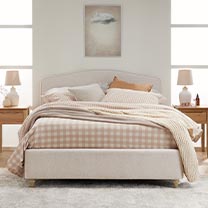
 Fabric Dining Chairs
Fabric Dining Chairs
 Oak Chairs
Oak Chairs
 Painted Dining Chairs
Painted Dining Chairs
 Benches and Stools
Benches and Stools
 Bookcases
Bookcases
 Coffee Tables
Coffee Tables
 Hallway Furniture & Storage
Hallway Furniture & Storage
 Nest of Tables
Nest of Tables
 Rugs
Rugs
 Shelving Units
Shelving Units
 Shoe Storage
Shoe Storage
 Sofas
Sofas
 Storage Cabinets
Storage Cabinets
 TV Units
TV Units
 Painted Living Room Furniture
Painted Living Room Furniture
 All Sofas
All Sofas
 2 Seater Sofas
2 Seater Sofas
 3 Seater Sofas
3 Seater Sofas
 4 Seater Sofas
4 Seater Sofas
 Corner Sofas
Corner Sofas
 Modular Sofas
Modular Sofas
 Recliner Sofas
Recliner Sofas
 Sofa Beds
Sofa Beds
 New Sofa Ranges
New Sofa Ranges
 Accent Chairs
Accent Chairs
 Armchairs
Armchairs
 Recliner Chairs
Recliner Chairs
 Loveseats
Loveseats
 Footstools
Footstools
 Storage Footstools
Storage Footstools
 All Leather Sofas
All Leather Sofas
 Leather Sofa Ranges
Leather Sofa Ranges
 Leather Armchairs
Leather Armchairs
 Leather Footstools
Leather Footstools
 Leather Recliner Chairs
Leather Recliner Chairs
 Leather Corner Sofas
Leather Corner Sofas
 Fabric Sofa Ranges
Fabric Sofa Ranges
 Fabric Armchairs
Fabric Armchairs
 Fabric Footstools
Fabric Footstools
 Fabric Recliner Chairs
Fabric Recliner Chairs
 Fabric Recliner Sofas
Fabric Recliner Sofas
 Fabric Corner Sofas
Fabric Corner Sofas
 Single Beds
Single Beds
 Double Beds
Double Beds
 King-Size Beds
King-Size Beds
 Super King-Size Beds
Super King-Size Beds
 Wooden Beds
Wooden Beds
 Storage Beds
Storage Beds
 Wingback Beds
Wingback Beds
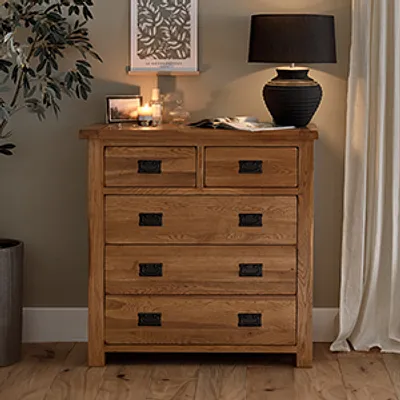
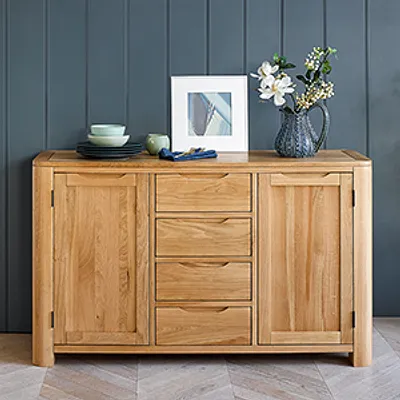
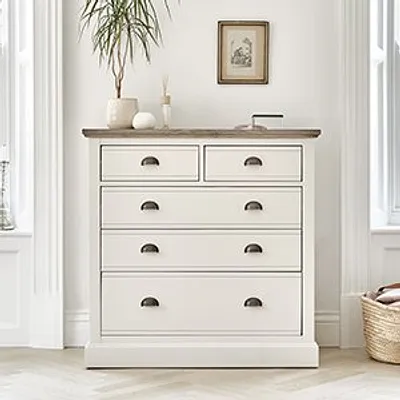
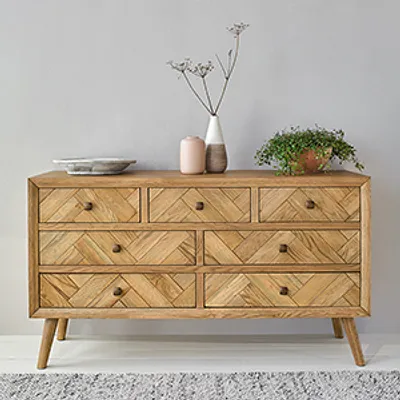
 Mirrors
Mirrors
 Lamps
Lamps
 Clocks
Clocks
 Wall Art
Wall Art
















